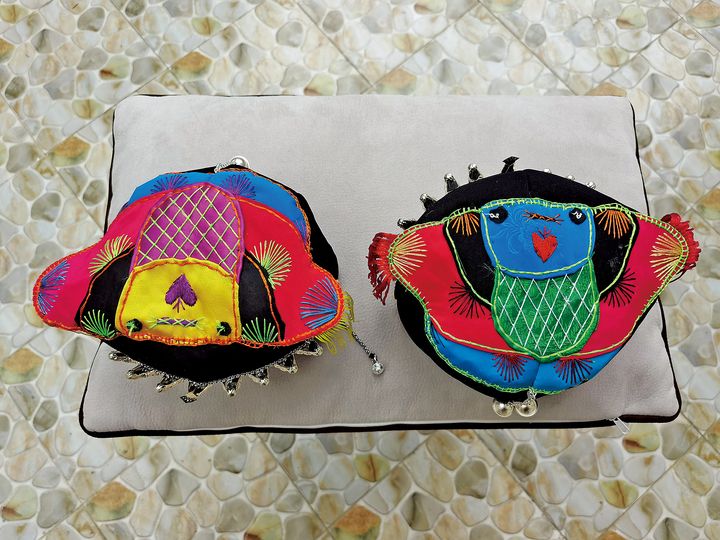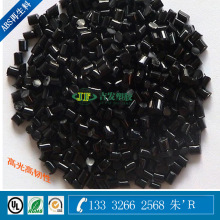Stop shaming recipe bloggers for writing a lot
Every so often, someone will act very angry online because a recipe they clicked on has "too much text." They wanted to make mushroom ravioli, but instead had to scroll through a bunch of words about what mushroom ravioli means to a blogger's family. Boring!
It's true that many (if not most) food bloggers write long narratives preceding their recipes. Sometimes, they explain how they developed the recipe. Other times, they share why they chose to post this particular food, or explain the modifications they've made to accommodate family members with dietary restrictions. They might share a story about the dish providing them comfort in a difficult time, or how cooking the dish with a loved one healed a broken relationship. Food is personal, after all; it comes with stories.
So why do so many people rush to mock them?
Cadry Nelson, a food blogger who runs the vegan website Cadry's Kitchen, includes narratives with her recipes regularly. (She's also written an essay about recipe narratives.) This is partially because she wanted to document her transition to veganism, the context in which she developed much of her work. In doing so, she'd create a reference point for readers curious about going vegan themselves.
"I was trying a lot of produce I’d never had before, as well as re-creating old familiar flavors but without meat, dairy, and eggs," she explained in an interview. "I didn’t have many other friends who were vegan at that point."
View this post on Instagram
Sharing this information doesn't just benefit her readers, either. It also helps her secure a place in the saturated food blog realm. "Through these posts, I’ve gotten to know bloggers’ flavor preferences too," Nelson said. By sharing stories on blogs, people get to know the types of foods [and] flavors that specific recipe creators enjoy. You figure out who is a good match for your own palate."
So why do people have such an issue with people writing about their own food? It seems to come down to convenience. Generally, perturbed readers complain that it takes too long for them to scroll down to the recipe itself.
Historian Kevin Kruse, for example, tweeted his disdain for recipe narratives last weekend: "Hey, cooking websites?" he wrote. "I don't really need a thousand words about how you discovered the recipe or the feelings it evoked for you ... I'm trying to feed my family. No need to curate the experience for me."
SEE ALSO:Why the '15-minute recipe' sets you up to fail"GIMME THE RECIPE HON MY SCROLL FINGER HURTS," tweeted Chelsea Peretti last November.
Admittedly, it is irritating when anything is difficult to find on the internet, especially when we've come to expect an easy-as-pie user experience from every app and every website. It can feel like a slog to scroll through paragraphs of text when all you want is a list of ingredients.
But the thing to interrogate here isn't necessarily whether blocks of text are annoying -- it's why people think these particular blocks of text don't deserve to exist.
Nelson thinks there's an element of sexism to the critiques she sees about recipe writing. Home cooking is still a deeply gendered pursuit, and writers whose work centers on home cooking are still perceived as less professional, less valuable, and less worthy voices. "The feeling seems to be that they don't think these writers have something of value to offer," Nelson said.
There's been high-profile backlash to the backlash against recipe narratives. After Kruse's tweet, Smitten Kitchen creator Deb Perelman tweeted a thread on the matter, encouraging recipe writers to "write as long and as in-depth as your heart desires about recipes and anything else they drum up in your mind and ignore anyone who says you shouldn't."
Tweet may have been deleted
Tweet may have been deleted
Tweet may have been deleted
Like Nelson, she also called out detractors' casual sexism. "Congratulations, you've found a new, not particularly original, way to say 'shut up and cook,'" she tweeted. "I just don't see don't see the same pushback when male chefs write about their wild days or basically anything. Do you?"
"I wish more people who cooked got to tell their stories," she added.
There's also a more technical element at play where recipe narratives are concerned: search engine optimization (SEO). Recipe bloggers want to catch the attention of the illusive Google algorithm -- and, ideally, land their recipe on the coveted first page -- so they must demonstrate "authority" in their field. This means more comprehensive content, which is really hard to pull off with a concise recipe alone. (Tons of people will be using the phrase "apple crumble," for example, but only you can write your own story about it.)
"When I’m writing, I try to tell a story that has a hook as well as please[s] the Google algorithm," Nelson said. "I do keyword research ... I see what kinds of questions people have around the topic, and look for ways to anticipate their problems, and answer their questions, so that they will have a successful cooking experience. Lately, I’ve been adding more step-by-step pictures of how to make dishes, as well as videos, because Google says that readers want that."
'I wish more people who cooked got to tell their stories.'
Even though she's noticed people criticizing lengthy posts, Nelson maintains that writing a lot -- authoritatively, of course -- is what's going to get eyes on her recipes. "People say they want shorter posts, but Google values information," she said. "It’s hard to give information without using some words along the way."
SEO and marketing experts agree that Nelson's approach is a smart one, especially in such a saturated landscape. "Because a recipe usually consists of a listing of ingredients and steps, it’s often very difficult for a search engine to discern what this article is trying to convey," Pete Herrnreiter, who is the VP of digital strategy at The Motion Agency, explained via email. "By developing a richer upfront with background on the dish ... it [helps to] define the post."
Content strategist Abby Sanders, who works for Von Mack Agency, also emphasized the advantages of differentiating one's recipe from the pack. "These days, search engines are pretty effective at determining whether a page can serve as an 'expert source' on a specific query," she said. "So any additional content that includes certain keywords, as long as it's coherent and well-written, will improve that page's ranking."
View this post on Instagram
As a caveat, Sanders mentioned, there are "plenty of other factors that play a role in rankings, such as domain authority, links to that page, and the list goes on. But from a sheer content standpoint, it does make good sense for a food blogger to write some extra, interesting copy around their subject."
So, fine. Finding a list of chili ingredients would be easier if we didn't have to scroll. But recipe bloggers are writers, and they have stories to share that are poignant, funny, and valuable -- even if you (and I) don't love every single one you read. And if you really don't like the narratives? There are plenty of places for you to find story-free recipes online, though you might have to pay for a subscription to see some of them. Also, cookbooks exist.
"My food blog is my own. It’s my creative space. I spend a lot of time testing the recipes, taking photographs, making videos, and writing my stories," Nelson said. "If people aren’t interested in any aspect, so be it."
"My blog is Cadry’s Kitchen. It’s literally the place where I cook," she added. "I don’t know why I would write myself out of it."
Featured Video For You
What happens to your body when you eat spicy food?
相关文章
 八仙帽精美的刺绣作品周学琼左)、唐伟欣右)在门口刺绣藏彝走廊东部边缘的石棉县,在横断山脉的褶皱、隆起与断裂,以及河流的急剧切割作用下,群山峡谷中藏着一个藏族秘境——蟹螺堡子。石头和泥土砌成的房屋展示着2024-09-22
八仙帽精美的刺绣作品周学琼左)、唐伟欣右)在门口刺绣藏彝走廊东部边缘的石棉县,在横断山脉的褶皱、隆起与断裂,以及河流的急剧切割作用下,群山峡谷中藏着一个藏族秘境——蟹螺堡子。石头和泥土砌成的房屋展示着2024-09-22 省农科院蔬菜所赴印度尼西亚、马来西亚开展访问交流_南方+_南方plus应印度尼西亚PT.JJMINDONESIA公司总裁Chairman)SanatoUtomo和马来西亚GWGGREEN WORLD2024-09-22
省农科院蔬菜所赴印度尼西亚、马来西亚开展访问交流_南方+_南方plus应印度尼西亚PT.JJMINDONESIA公司总裁Chairman)SanatoUtomo和马来西亚GWGGREEN WORLD2024-09-22 雅安日报/北纬网讯清明节,不仅是祭拜祖先的传统节日,更是缅怀革命英烈的重要节日。在清明节前夕,我市在网上推出“清明祭英烈”献花寄语活动,广大干部群众可通过登陆雅安文明网、雅安文明有约微信公众号参与。通2024-09-22
雅安日报/北纬网讯清明节,不仅是祭拜祖先的传统节日,更是缅怀革命英烈的重要节日。在清明节前夕,我市在网上推出“清明祭英烈”献花寄语活动,广大干部群众可通过登陆雅安文明网、雅安文明有约微信公众号参与。通2024-09-22 成本低廉是银行海外融资最主要的原因;外债外用是海外债券融资的需求基础;国际市场对人民币债券等投资需求日益增加,为银行海外发债提供了良好的市场环境近期,金融机构海外融资步伐加快,各大银行频频发行以人民币2024-09-22
成本低廉是银行海外融资最主要的原因;外债外用是海外债券融资的需求基础;国际市场对人民币债券等投资需求日益增加,为银行海外发债提供了良好的市场环境近期,金融机构海外融资步伐加快,各大银行频频发行以人民币2024-09-22
Unionized hospital workers pull out from strike
Health care workers at Chosun University Hospital hold signs and chant slogans at the hospital'2024-09-22 业内人士称,观察人民币汇率变化、热钱动向以及分析外贸走势应更多地关注央行持有的外汇资产、外汇占款两项数据变化“4月份央行和金融机构新增外汇占款规模出现大幅波动与人民币兑美元汇率贬值有关。&2024-09-22
业内人士称,观察人民币汇率变化、热钱动向以及分析外贸走势应更多地关注央行持有的外汇资产、外汇占款两项数据变化“4月份央行和金融机构新增外汇占款规模出现大幅波动与人民币兑美元汇率贬值有关。&2024-09-22

最新评论